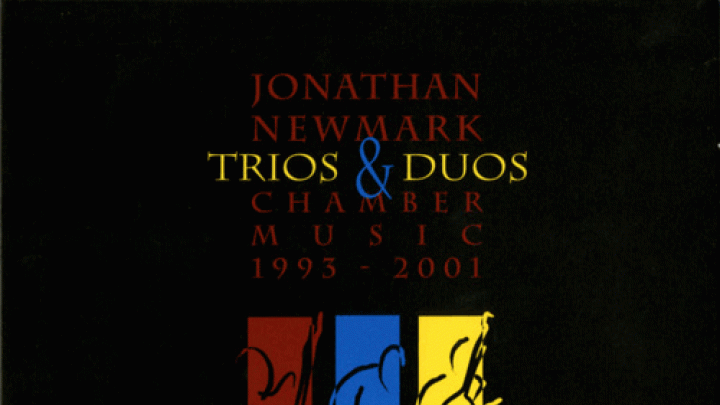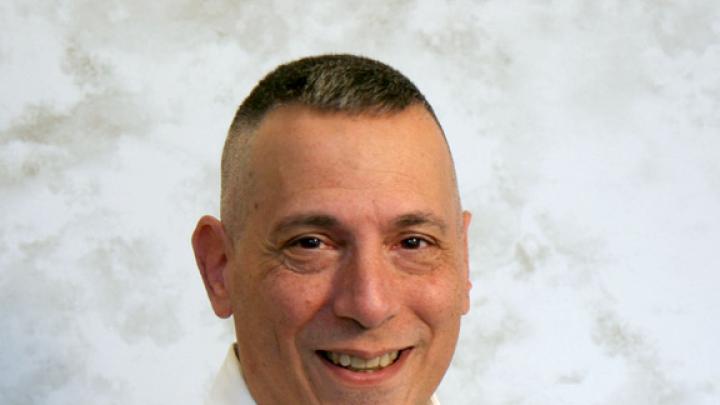Pianist, violist, and conductor Jonathan Newmark ’74 composes his own music by hand, resisting the increasingly common tendency to rely on computer programs that ease the process of editing. “The hardest thing is to get started,” he says. “Every work starts with some sort of germ: a chord, a chord progression, a motive, or even a form. Getting to that germ takes the most time and effort. Once there, the process of expansion and variation is more organic and a lot more fun.”
Newmark’s first CD of his own chamber works, Trios and Duos: Chamber Music 1993-2001, features four pieces for a variety of instruments (including oboe, bassoon, horn, piano, and strings). The project reflects a long-standing love. He began studying piano and viola in third grade and attended the preparatory divisions of the Juilliard and Manhattan Schools in New York. One of his greatest influences was his high-school viola teacher, now 90, with whom he still keeps in touch. “The biggest thing she did for me was that she turned me on to chamber music,” he says. “When I was in ninth grade, I organized a string quartet with three eighth-grade friends, and we stayed together, even while we were going to different colleges, for 10 years. We discovered the literature the old-fashioned way, not by listening to records, but by sight-reading.” Newmark still plays chamber music full-time two weeks a year at the Chamber Music Conference and Composers’ Forum of the East at Bennington College. “If my chamber works are well-written,” he explains, “it’s due to spending decades playing really great literature for small combinations.”
Remarkably, music is not his primary career. He is a clinical neurologist, as well as a specialist in medical responses to chemical and biological warfare and terrorism. In 1993, at a professional crossroads and not having written music in more than 25 years, he started composing seriously. The same year, he switched from the Army Reserve to active duty. He now holds the rank of colonel and is medical deputy to the two-star general who manages all acquisition programs for the Department of Defense in chemical and biological defense. He continues to attend on the inpatient neurology service at Walter Reed Army Medical Center and lectures to medical students at the Uniformed Services University of the Health Sciences.
Balancing his multiple careers is not easy. “There’s no rulebook, and I have to improvise,” he says. “I think, like most reservists and many of my musician friends, that I’ve gotten quite good at multitasking, a skill I probably honed in college.” During the recording process, Newmark was sometimes frustrated by the near-impossibility of synchronizing his own schedule with those of the professional musicians. But despite the challenges of coordinating collaboration in the studio, he counts himself lucky as a composer. “It was indeed an honor,” he says, “to have such wonderful players taking my music seriously.”
Newmark’s musical tastes, developed in part during his undergraduate years as an announcer for WHRB, are eclectic; he listens to many different genres, including classical, Appalachian bluegrass, and jazz. Still, his “desert island composer”—the one whose music he would want to keep if he had to give up all others’—is J.S. Bach. In the future, he wants to dedicate more time to composition. “I’d like to continue to write music that gets played and survives me, so that there’s something left of me when I’m gone,” he says. “I realize that sounds a bit egotistical, but having the chutzpah to inflict my dissonances on others, in Charles Ives’s phrase, is an egotistical act. And no one has to listen to what I write. If they enjoy it, that’s icing on the cake.”









